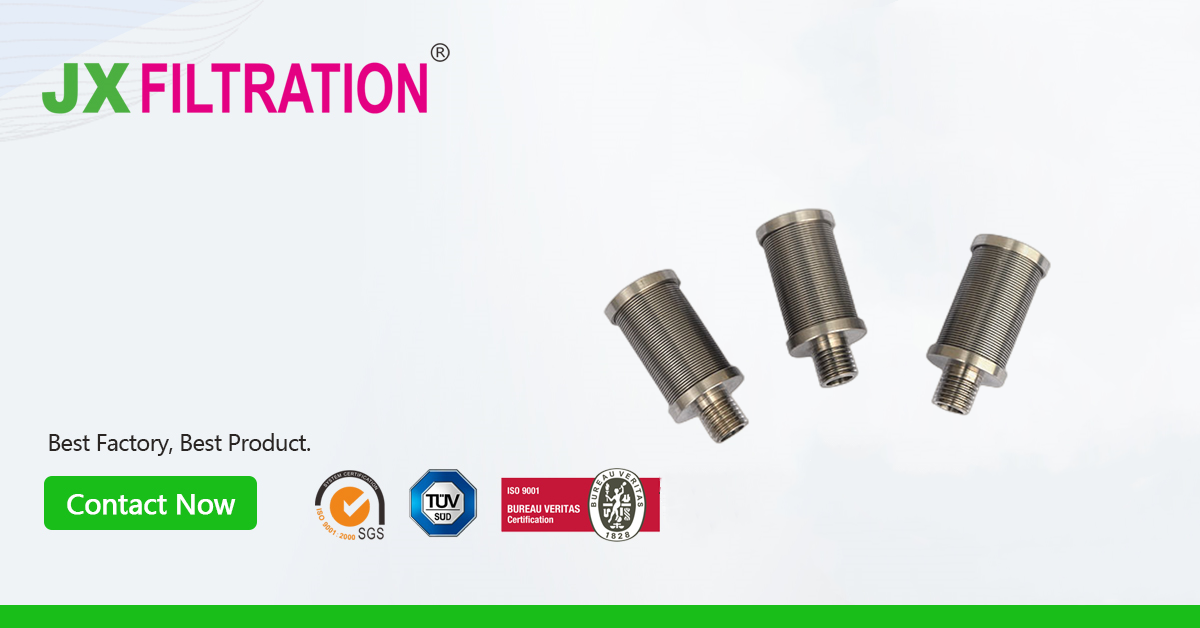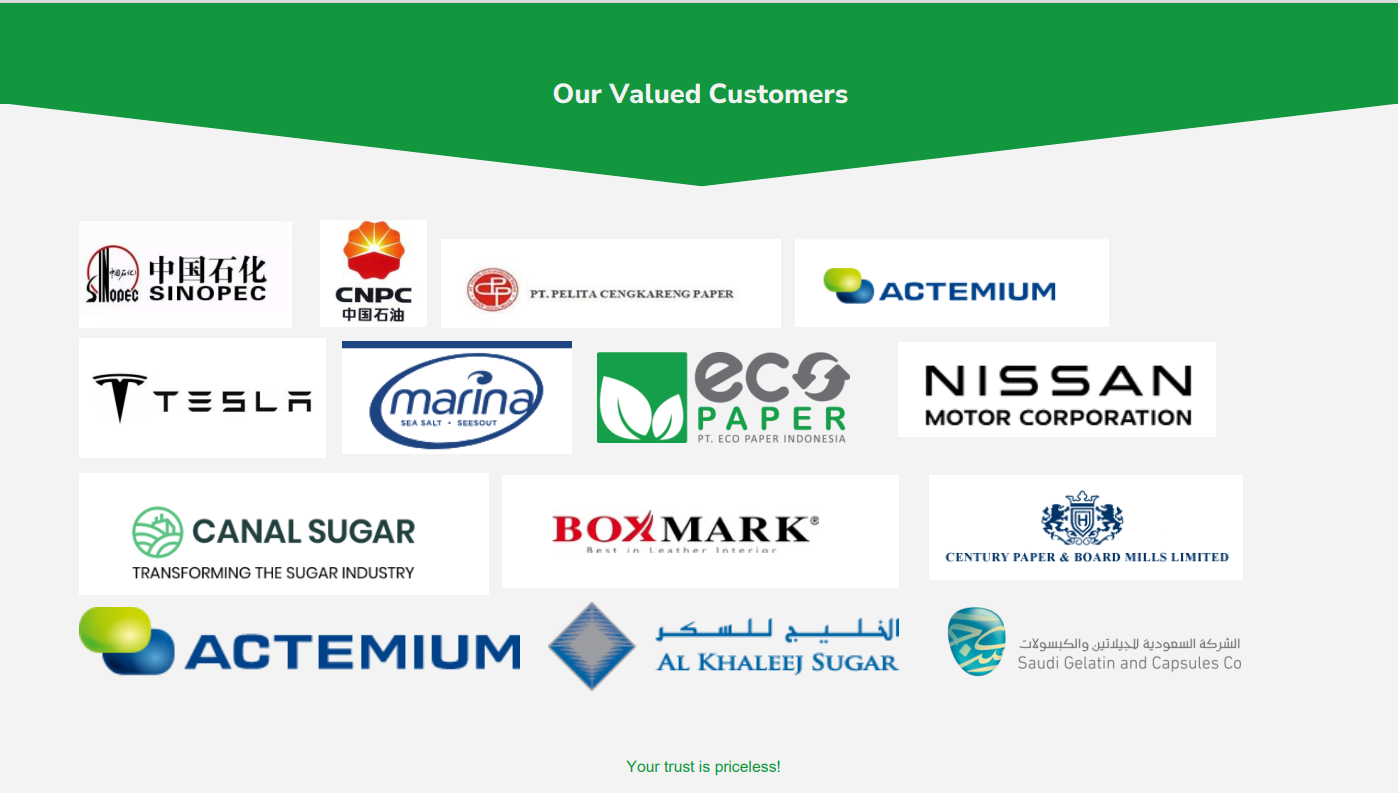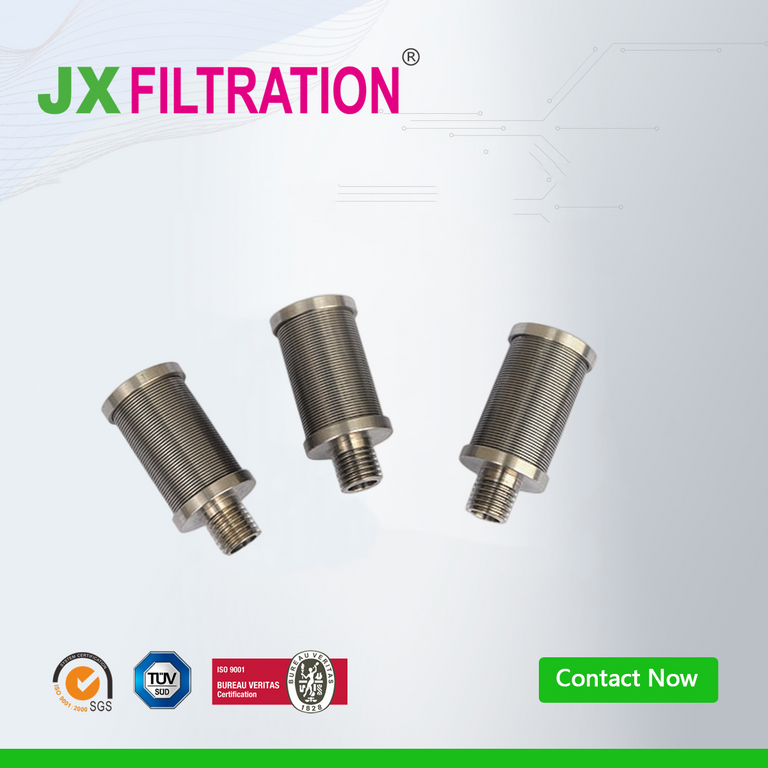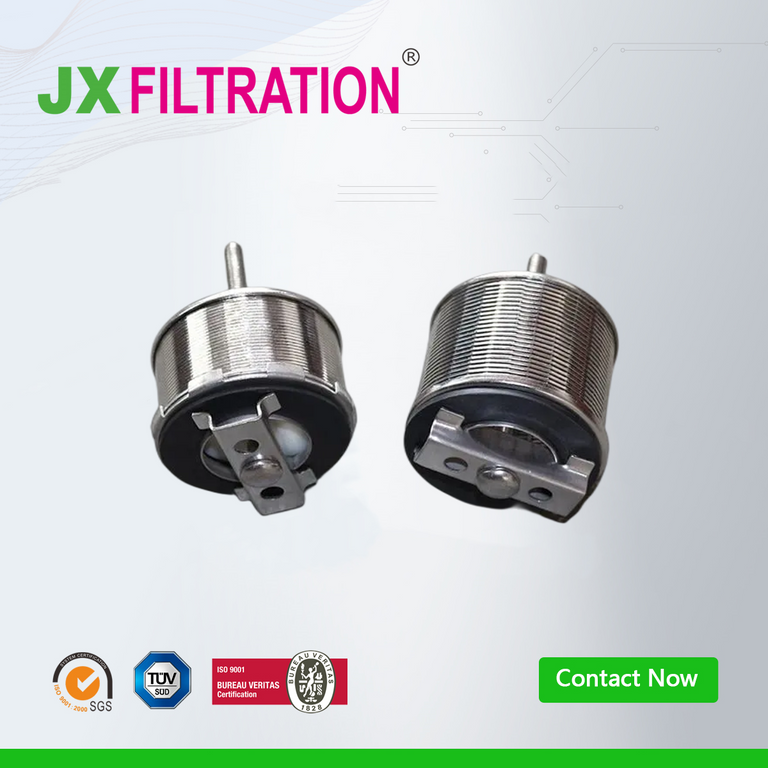What Are the Differences Between Nozzles
(1) Stainless Steel Nozzle (Wedge Wire Nozzle)
Stainless steel nozzles are made from materials such as 304, 316L, or 904L stainless steel, offering excellent strength, corrosion resistance, and high-temperature tolerance. However, corrosion resistance should be evaluated based on the water’s salinity—please refer to our article “Corrosion Resistance Data Sheet for Metallic Materials” for guidance.
Advantages:
-
Excellent corrosion resistance; suitable for harsh water conditions (e.g., high salinity, high/low pH)
-
High mechanical strength, capable of withstanding high pressure and high flow conditions
-
High-temperature resistance, up to 150°C or above (ideal for hot water applications)
-
Long service life (10–20 years) with low maintenance cost
Disadvantages:
-
High cost—3 to 10 times more expensive than ABS or PP nozzles
-
Heavier weight, making installation and maintenance more difficult
-
Risk of scaling or clogging over long-term use; regular cleaning is necessary
Applications:
Ideal for high-temperature/high-pressure systems (e.g., boiler feedwater), chemical and pharmaceutical industries, seawater desalination, specialized wastewater treatment, large mixed bed systems, high-flow ion exchange units, and industries with stringent requirements (e.g., food, pharmaceutical, nuclear). Not recommended for budget-sensitive or low-end water treatment systems.
(2) ABS Nozzle
ABS nozzles are made of high-strength engineering plastic with good toughness and impact resistance.
Advantages:
-
Low cost; suitable for large-scale applications
-
Strong impact resistance; not easily broken
-
Resistant to weak acids and weak alkalis (pH 4–10)
-
Lightweight; easy to install and maintain
Disadvantages:
-
Lower temperature resistance (maximum around 70°C; recommended long-term use ≤ 60°C)
-
Poor resistance to strong acids and alkalis (may corrode or degrade with prolonged exposure)
-
Susceptible to aging over time; relatively shorter service life
Applications:
Suitable for general softening systems, standard industrial water treatment, small to medium ion exchange units (mixed bed, cation/anion beds), municipal water supply, and cooling water circulation systems. Not recommended for high-temperature or strong acid/alkali environments such as chemical wastewater treatment.
Any Requirements, Contact Us Now!
Kris
Email/Teams: kris@filtrationchina.com
Mobile/Whatsapp/Wechat: +86 18980776200


